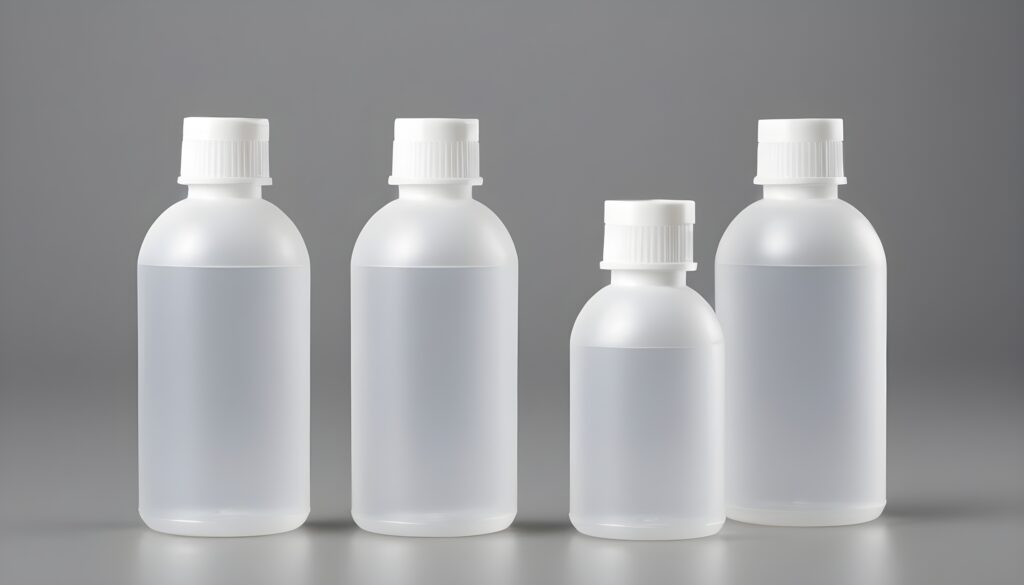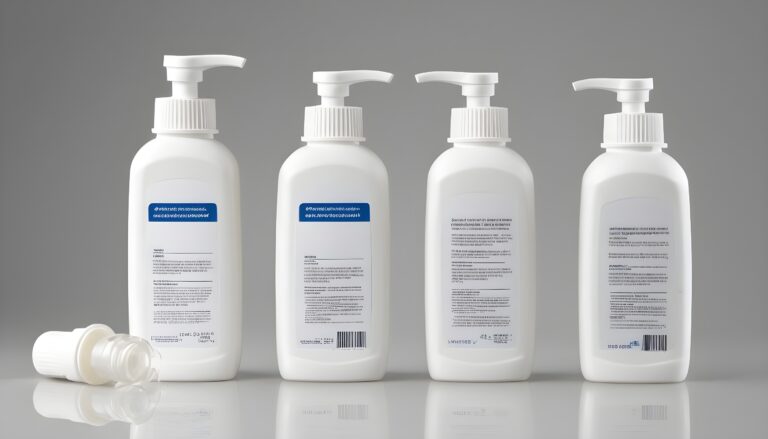When running a surgical lubricant business, choosing the right surgical lubricant bottles is a crucial decision. The proper bottles not only ensure the safety and long shelf life of your products but also contribute to the overall success of your business. In this comprehensive guide, we will explore the key factors you should consider before purchasing surgical lubricant bottles. By understanding different types of bottles, quality assurance, compliance with industry standards, packaging, pricing, customer reviews, and various other elements, you will be equipped to make informed purchasing decisions.
Table of contents
Understanding Different Types of Surgical Lubricant Bottles

Surgical lubricant bottles come in various types, each with its own set of advantages and disadvantages. The choice of material, size, and shape can impact the usability, durability, and even the aesthetic appeal of the bottles. Common materials used for surgical lubricant bottles include plastic, glass, and metal. Plastic bottles offer affordability and lightweight characteristics, while glass bottles provide superior visibility and chemical resistance. Metal bottles, on the other hand, offer exceptional durability but can be heavier.
Consider the specific requirements of your business and the preferences of your customers when selecting the most suitable material for your surgical lubricant bottles. Moreover, decide on the bottle sizes and shapes that align with your product’s volume and dispensing needs.
12 Factors to Consider Before You Buy Surgical Lubricant Bottles
1. Quality Assurance and Reliability of Suppliers
Ensuring the quality and reliability of your surgical lubricant bottles begins with partnering with trusted suppliers. Research the suppliers’ reputation in the industry, considering factors such as experience, testimonials, and adherence to quality control protocols. A reliable supplier should be able to provide you with certifications and validation tests that confirm their products’ quality. Additionally, consider visiting the supplier’s manufacturing facility to assess their production processes and facilities.
2. Compliance with Industry Standards and Regulations
Complying with industry standards and regulations is vital for any medical-related product, including surgical lubricant bottles. Familiarize yourself with the relevant standards and regulations governing the production, labeling, and distribution of these bottles. Ensure that the bottles you choose meet or exceed these requirements, as non-compliance can lead to legal consequences and damage your business reputation. Maintain close communication with regulatory bodies and stay updated on any changes in the industry standards.
3. Packaging and Labeling Considerations
The packaging and labeling of surgical lubricant bottles play a significant role in product safety, professionalism, and customer experience. Opt for packaging materials that are compatible with your product, ensuring they protect against contamination and leaks. Clear labels with vital information such as product name, ingredients, manufacturer details, and usage instructions are essential. Additionally, comply with labeling requirements set by regulatory authorities to avoid penalties and facilitate smooth distribution.
4. Price and Cost Analysis
Price is a critical factor when purchasing surgical lubricant bottles, but it should not be the sole determining factor. Consider the quality, durability, and compliance factors alongside the price. Evaluate the total cost of ownership throughout the product’s lifecycle, ranging from purchasing to disposal. While higher-quality bottles may have a slightly higher initial cost, they can result in cost savings by reducing defects, leakage, and potential hazards.
5. Evaluating Supplier Capacity and Lead Time
To ensure a steady and reliable supply, it’s essential to assess the manufacturing capacity and lead time of your chosen supplier. Inquire about their production capacity, ability to accommodate your order volume, and any limitations they might have. Additionally, discuss lead times for production, shipping, and delivery to avoid delays and stock shortages. A supplier with a robust supply chain and the ability to meet your demands will contribute to the overall success of your surgical lubricant business.
6. Customer Reviews and Recommendations
Seeking feedback from other customers and industry peers can provide valuable insights when selecting surgical lubricant bottles. Look for reliable platforms and communities where real customers share their experiences and recommendations. Analyze the overall feedback, considering factors such as product quality, durability, supplier responsiveness, and after-sales service. While not every review should dictate your decision, evaluating a range of perspectives can help you make an informed choice.
7. Environmental Impact and Sustainability
As sustainability becomes increasingly important, consider the environmental impact of the surgical lubricant bottles you choose. Look for eco-friendly options such as recyclable or biodegradable materials. By prioritizing sustainability, you not only contribute to environmental conservation but also enhance your brand’s reputation and appeal to eco-conscious customers.
8. Customer Support and After-Sales Service
Effective customer support is essential when dealing with surgical lubricant bottles. Problems or inquiries may arise, and having responsive and knowledgeable customer support is crucial. Check if the supplier provides after-sales services such as technical assistance, troubleshooting, and replacement options. A supplier that prioritizes customer satisfaction will ensure a smooth experience throughout your partnership.
9. Bulk Ordering and Pricing Negotiation
Bulk ordering surgical lubricant bottles can offer several advantages, including cost savings and consistent supply. Consider ordering larger quantities to negotiate lower prices with your supplier. Negotiation skills are crucial here, as you can explore better terms and conditions to maximize your benefits. However, always ensure that your business can handle the inventory and storage requirements of bulk orders.
10. Shipping and Logistics
Proper shipping and logistics are essential to receive your surgical lubricant bottles safely and on time. Choose appropriate shipping methods that ensure the bottles’ integrity and prevent damage during transportation. Understand the regulatory requirements and customs regulations associated with importing or exporting surgical lubricant bottles, especially if you operate on an international scale.
11. Comparing Multiple Suppliers
Comparing multiple suppliers is vital to finding the most suitable partner for your surgical lubricant bottle needs. Develop a checklist of evaluation criteria that considers factors like product quality, customization options, production capacity, pricing, customer support, and delivery capabilities. Request quotes and samples from different suppliers to assess their offerings comprehensively. By comparing multiple suppliers, you can confidently choose the one that aligns best with your business requirements.
12. Ordering Process and Payment Terms
Understanding the ordering process and payment terms is crucial for a smooth and hassle-free experience. Clarify the steps involved in placing an order, including minimum order quantities and lead times. Negotiate favorable payment terms that suit your cash flow and budget. Additionally, ensure that your chosen supplier offers secure payment methods to protect your financial transactions.
Conclusion
Selecting the right surgical lubricant bottles for your business requires careful consideration and evaluation. By understanding the different types of bottles, and ensuring quality, compliance, suitable packaging, and pricing analysis, you can make an informed decision. Additionally, factors such as supplier reliability, customer reviews, sustainability, and good after-sales support contribute to the overall success of your surgical lubricant business. By following these guidelines, you can confidently purchase surgical lubricant bottles that meet your business needs and contribute to your product’s success.
FAQs
1. Should I choose plastic or glass surgical lubricant bottles?
The choice between plastic and glass depends on factors such as product compatibility, visibility requirements, and any specific preferences of your customers.
2. What certifications should I look for when evaluating suppliers
Look for certifications such as ISO 9001 and ISO 13485, which indicate a supplier’s commitment to quality management systems and medical device manufacturing standards.
3. Are there any eco-friendly options for surgical lubricant bottles?
Yes, there are environmentally friendly options available, such as bottles made from recyclable materials or those that are biodegradable.
4. How do I negotiate pricing with suppliers without compromising on quality?
Focus on long-term cost savings, consider bulk ordering, and discuss your budget constraints openly with suppliers to find a mutually beneficial pricing agreement.
5. Can you recommend any platforms to find reliable customer reviews for surgical lubricant bottles?
Websites like Trustpilot, Google Reviews, and industry-specific forums can be valuable sources for genuine customer reviews and recommendations.














